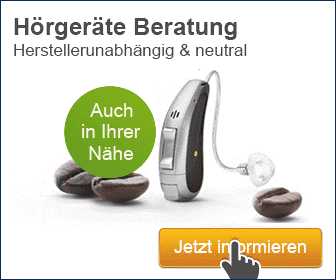Health literacy ("Health Literacy")
The knowledge, motivation and ability of people to find relevant health information in different forms

Internationally, the subject of health literacy has been discussed intensively since the 1970s. The English term "Health Literacy" literally means: one "on health related literacy “. It refers to the basic writing, reading and computing skills that people need to read and understand written information such as health and treatment information or medication information. International research has already shown that increasing health literacy has high potential in terms of health, well-being and health equity. But only around the year 2010 did this realization really reach Europe.
The health literacy debate has evolved since then, and with it also what is meant by that term. Initially, it reflected the traditional distribution of physician-patient roles that is characterized by medical paternalism – the patient should be able to understand and follow treatment information first and foremost. Today, health literacy refers to the competent handling of health-related information, whereby this treatment no longer refers only to disease-related information for the better treatment of a disease, but above all includes information that is related to improving and maintaining good health.
In the practice manual "Health literacy in focus" The AOK takes up the debate and invites active dialogue on opportunities and opportunities for strengthening health literacy. The book presents a comprehensive selection of exemplary projects and initiatives from various life contexts, which show how it is possible to make health-related information easier and more usable. The book provides ideas, gives impulses and motivates to imitation.
Regional issues of the practice manual
At the European level, the decisive factor in this development was the commissioning by the European Commission of an eight-nation consortium (European Health Literacy Consortium) in 2008. In Germany, the first nationwide representative survey on health literacy among statutory health insurance funds, published by the AOK Federal Association and the Scientific Institute of Local Health Insurance Funds (WIdO) in 2014, was an important milestone. The mission at EU level involved two tasks: first, to create a definition that took into account all known definitions and, second, to develop a questionnaire to measure health literacy. The developments were accompanied and secured by an international, high-ranking panel of experts.
The four most important aspects of health literacy
Every second feels overwhelmed
The World Health Organization (WHO) defines health literacy as the sum of all cognitive and social skills that motivate and empower people to make their lifestyle healthier. These skills include access to, understanding of, and constructive handling of health-related information. Health literacy is considered the key to healthy behavior. When well informed, patients can make better decisions in their daily lives that have a positive impact on their health.
The definition of the European Health Literacy Consortium published in 2012 sums up the new, more comprehensive understanding of health literacy very well: "Health literacy is based on general literacy and includes the knowledge, motivation and ability of people to find, understand, assess and apply relevant health information in different ways to make judgments and decisions in everyday life in the areas of disease management, disease prevention and health promotion who maintain or improve their quality of life throughout the life course “(Sørensen, 2012).
Limiting the handling of health-related information to disease management, disease prevention, and health promotion has prevented all health literacy skills from being subsumed under this term. This would have led to a clear blurring and overloading of the term as well as a lack of measurability.
Materials for download:
Health literacy – the facts
German version of the WHO study "Health Literacy. The Solid Facts", WHO 2016
Result report: Health literacy in Germany
Study of the University of Bielefeld under the direction of Prof. Dr. med. Doris Schaeffer
Perspective and experiences of people with chronic illness
Investigation of the University of Bielefeld under the direction of Prof. Dr. med. Doris Schaeffer
With digitization, more and more people are accessing a wealth of health information around the clock. At the same time, medical progress is leading to ever greater specialization in the healthcare system. This development presents citizens with major challenges. In order to navigate safely in this sea of information and options, a pronounced health literacy is indispensable. This is the ability to find, understand, critically assess and apply health-relevant information to one’s own life situation. Those who do not have these skills, or only to a limited degree, are less able to take care of their health.
Representative research has shown that more than half of Germans have only limited health literacy – across all sections of the population. However, low health literacy not only adversely affects individual health, but also has an impact on the use and cost of health care.
In addition to individual abilities and skills, health literacy depends to a large extent on the social and social conditions under which people live and what requirements their living situation and environment confront them with. Improving health literacy is therefore a task for society as a whole.
The AOK has been involved for years

Only when patients are well informed can they make better decisions about their health. As a result of these findings, the AOK became active years ago. Thus, the AOK-Bundesverband together with scientists developed the AOK fact boxes, which provide reliable information on measures such as vaccinations or X-rays for back complaints in a clear and comprehensible way.
The AOK fact boxes clearly contrast benefits and risks, damage and side effects with graphics and understandable texts. In this way, complex science is prepared in such a way that even non-specialists can understand the information well. When patients are well informed, they can make better decisions about their health.
Health begins with reading
More than 7.5 million people in Germany are functional illiterates. This means that you can not read texts or only with difficulty. This often has consequences for the health. A project of the Stiftung Lesen and the AOK-Bundesverband should help to improve the health literacy of these people – experts speak of health literacy.
“Health Literacy” in an international context
For many years, many industrialized countries around the world have been striving to increase the health literacy of the populations. The topic is firmly anchored in US and Canadian healthcare. Numerous educational aids and curricula for training purposes in school and adult education are in use. Both the United States (2010) and China (2014) have national action plans to increase the "Health Literacy" adopted. In Europe 2010 became the network "Health Literacy Europe" founded.
IROHLA – Health literacy and health literacy in Europe
The EU project IROHLA has now been completed – "Intervention Research On Health Literacy Among Aging Population". It focused on increasing the health literacy of older people in Europe. From December 2012 to the end of 2015, the project involved 22 partners from nine different EU Member States (including Belgium, Germany, Greece, the Netherlands, Hungary) with the aim of developing a comprehensive approach to improving the health literacy of the generation "50 plus" to develop.
Related Posts
-

The right office chair in the test – for your health – gaming chair test and size advice
The right office chair in the test – for your health The purchase of an office chair is pending. As with the gaming chair , the first question is: how…
-

Fact boxes, health literacy, engagement, aok-federation
AOK Fact Boxes: Clear and understandable information AOK Fact Boxes: clear and comprehensible information What are AOK fact boxes? The AOK fact boxes…
-

Widespread disease venous disease – information on health
Widespread disease Venenle >A contribution from April 23, 2014 . Varicose veins should always be examined and treated promptly if necessary (dbp /…
-

Hearing aids & hearing loss, germany’s large infoportal
Hearing aids are often described as mini-computers. Due to the complex technology and miniature size, the prices for the highest technology levels are…
